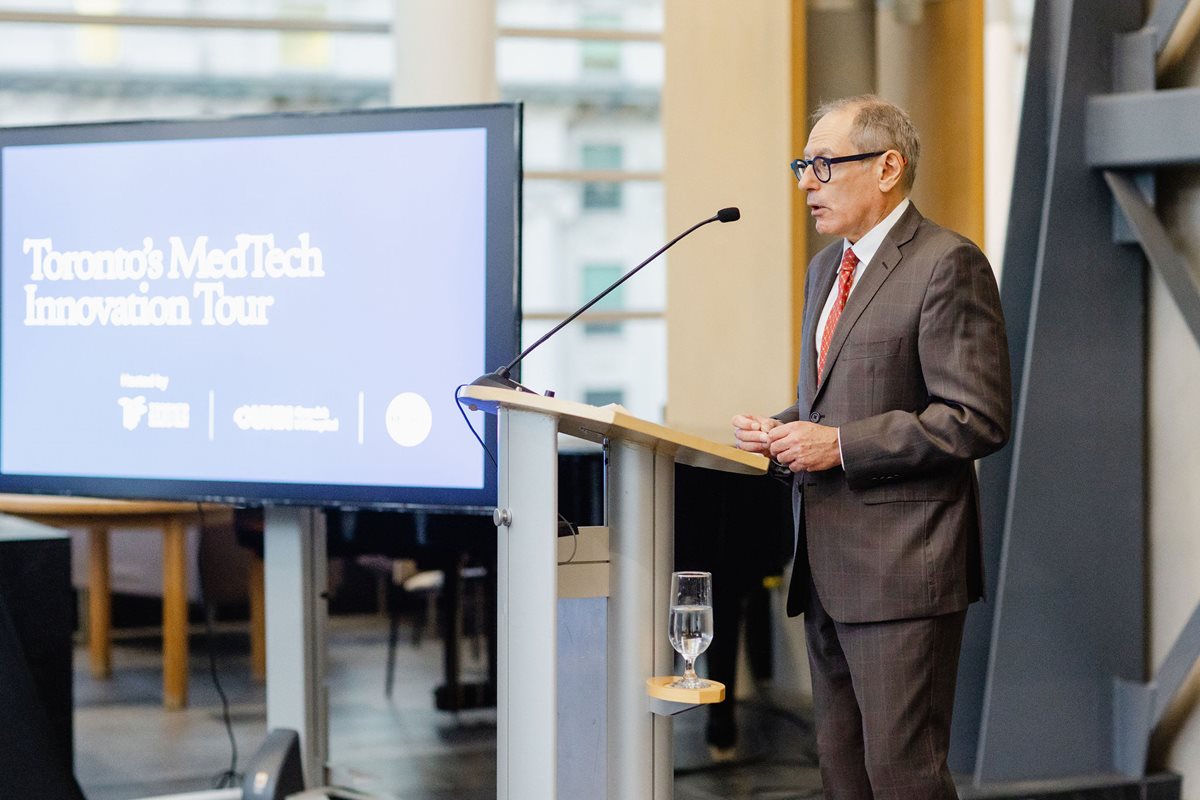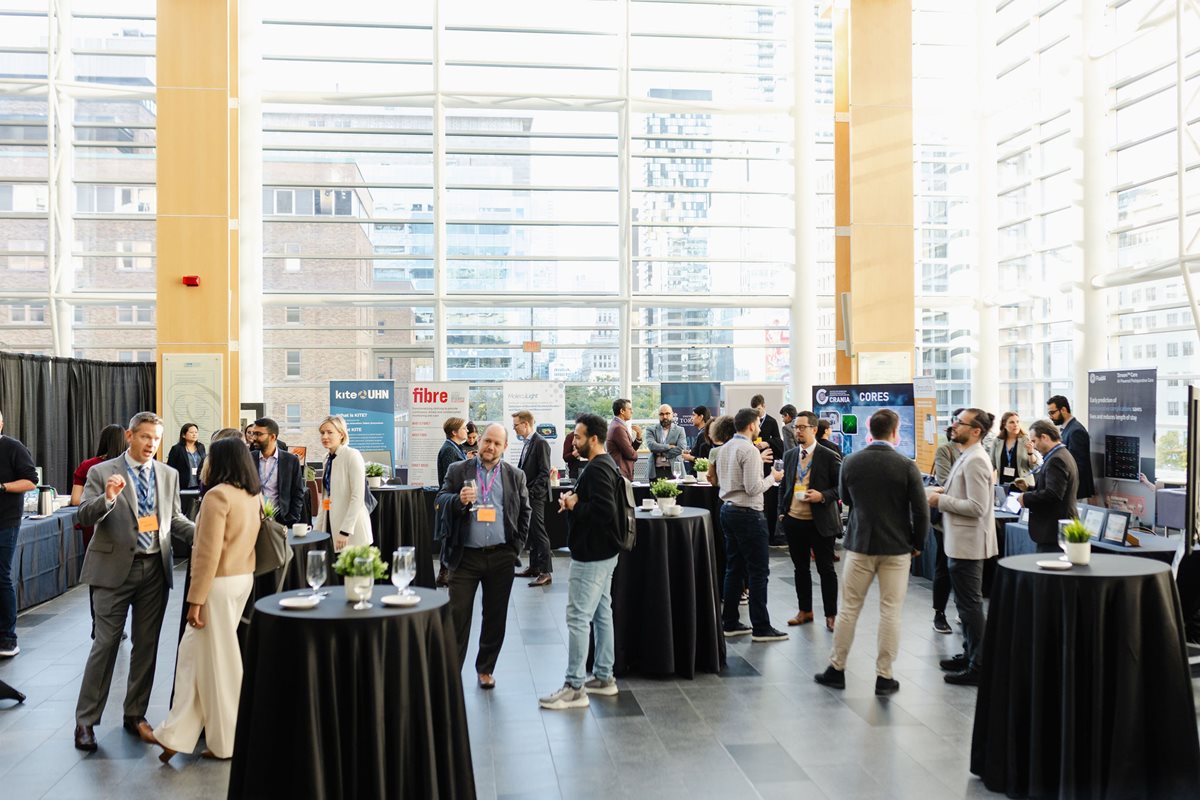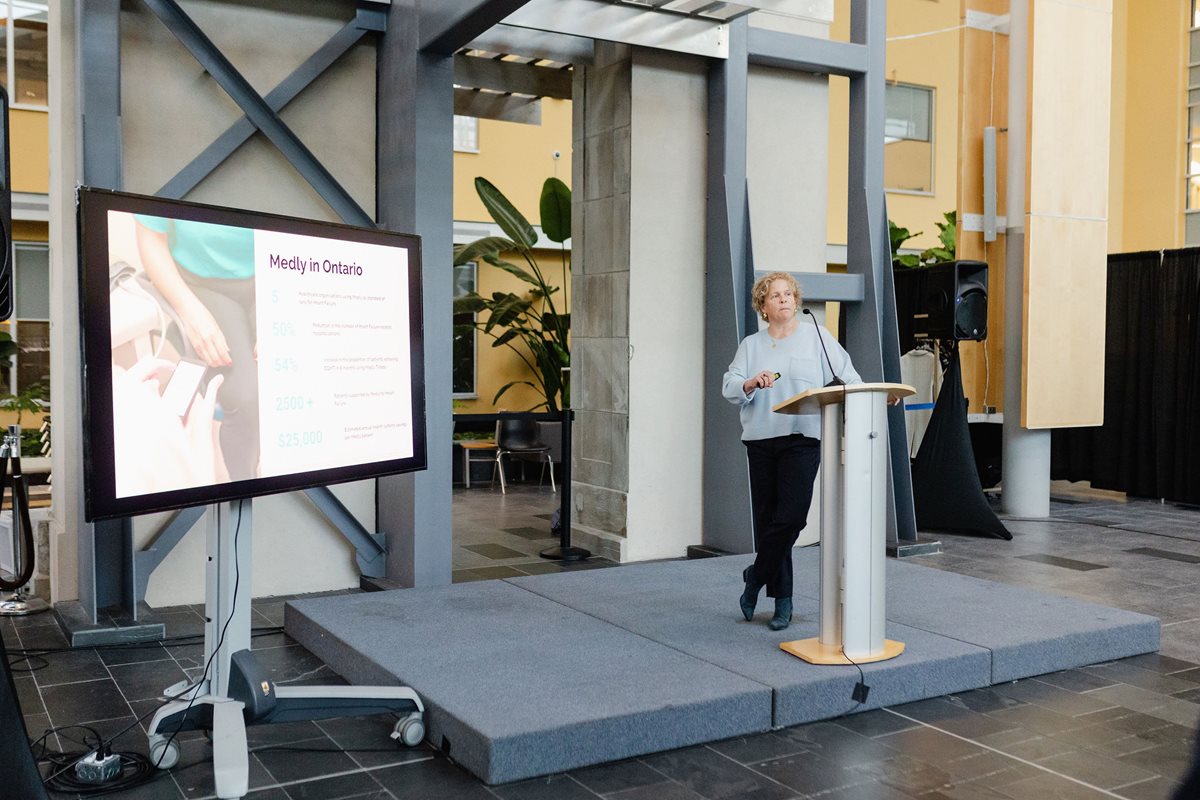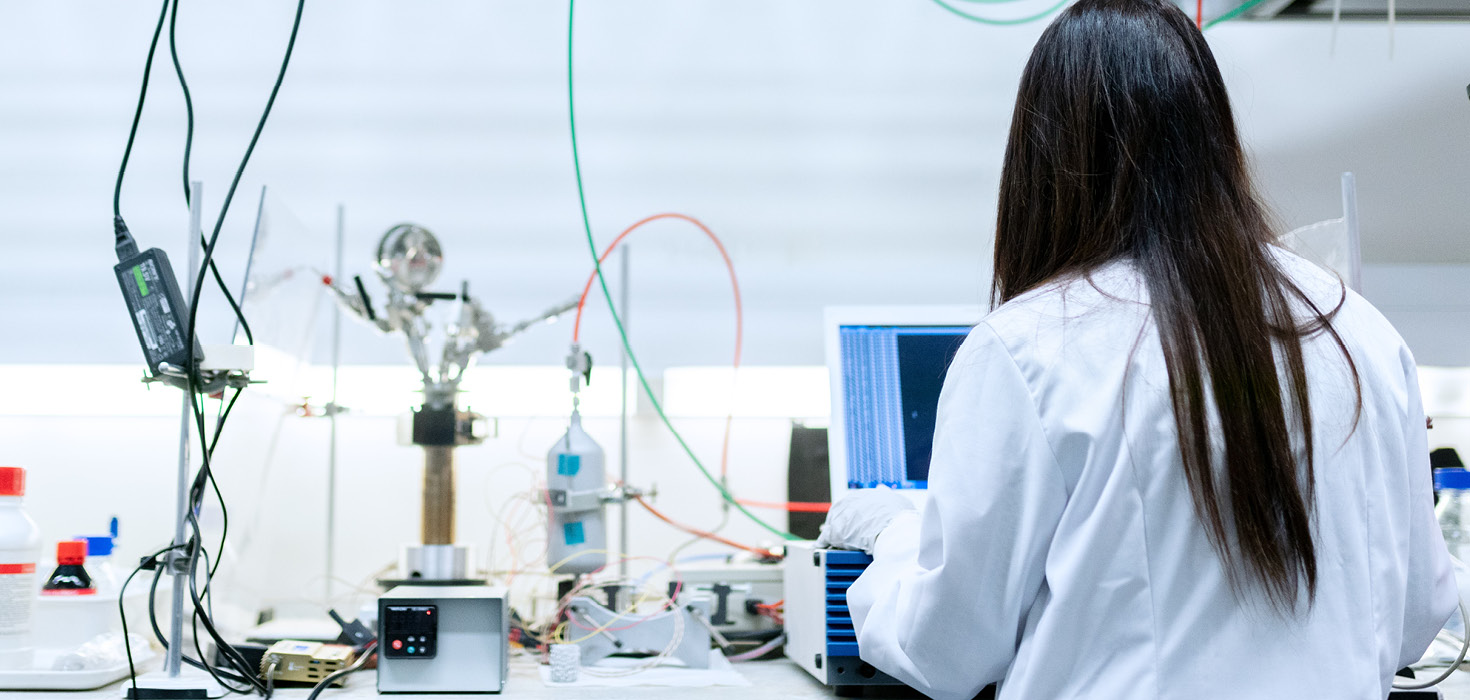Toronto's close-knit ecosystem thrives on its integration of academic research, clinical practice and entrepreneurship. The proximity of cutting-edge incubators, world-class hospitals, and Canada’s leading university creates a distinct competitive advantage that’s unmatched nationwide.
MaRS Discovery District connects directly to “hospital row” through an underground tunnel network, embedding the incubator to a concentration of world-class hospitals on University Avenue. Just steps away, the University of Toronto’s St. George campus lies to the west of College Street. Within minutes, professionals can access these institutions, many holding roles across them and driving collaborative projects that leverage the strengths and assets of all. This is how Toronto has built a unique environment that has fostered and advanced innovation for decades.
Toronto’s ascent to prominence in medical innovation is the result of decades of collaboration and investment to steadily and continuously build the region’s reputation in this space. It is not entirely surprising as we have a rich history of pioneering devices reshaping healthcare. A few notable solutions include:
- The first electronic heart pacemaker developed by Wilfred G. Bigelow
- The first pediatric exoskeleton to help children with disabilities walk created by Trexo Robotics
- The first-ever robotic intramuscular injection without needles developed by Cobionix
- The ALTA Platform, a novel, safe and efficient robotic patient transfers device designed by Able Innovations

In the spirit of showcasing what Toronto has to offer, we organized and hosted a tour in collaboration with the University Health Network (UHN) and MaRS during the 2024 AdvaMed MedTech Conference. The goal of our tour was to offer leaders visiting Toronto a firsthand look at the team who are pioneering state-of-the-art solutions right here at home.
Participants visited key sites within Toronto’s Innovation Corridor, including the McEwen Stem Cell Institute, Techna’s Engineering Lab and Healthcare Human Factors (HHF) Lab. These sites are where life-changing therapies and human-centric design are pushing the boundaries of what’s possible, including:
- Researchers at the McEwen Institute are developing a promising solution to repair damaged heart muscle tissue using stem cells, reducing the likelihood of an organ transplant being necessary.
- Techna’s team have developed landing protocols for the world’s first lung transplant transported by an unmanned aerial drone. This solution is a first step to revolutionizing organ transportation systems, but most importantly, changing the story for those who spend decades waiting for a transplant.
- As one of the few people-centered facilities of its kind evaluating medical devices in Canada, HHF works with many healthcare organizations, including the top 10 medical device companies in the world, to ensure products are safe and effective for intended users and clinical uses.

MedTech leaders who attended our event also had the opportunity to engage with several startups and research groups currently harnessing the power of AI to deliver new medical solutions. One such example is Medly, a digital, self-management and 24/7 remote monitoring platform for heart failure patients.
During the event, Dr. Heather Ross, a co-inventor of Medly and one of Canada’s top cardiologists, demonstrated the platform’s functionality to our guests and most importantly, explained Medly’s significant impact: a 50 percent reduction in the number of heart failure-related hospitalization and a 24 percent reduction in the number of hospitalizations for over 800 patients. The potential savings – both in terms of billions of healthcare dollars and thousands of lives affected by heart failure – are immense.

Medly’s journey began nearly 15 years ago when Dr. Ross was approached by University of Toronto PhD student, now faculty member, Emily Seto. Together with a multidisciplinary team at UHN, they developed what promises to transform heart failure care.
This story is a powerful testament to the life sciences innovation happening in Toronto, where experts from diverse institutions come together to address some of healthcare’s most pressing challenges.
The choice of Toronto to host the 2024 MedTech Conference, one of the world’s most influential gatherings of medical device leaders, highlights Toronto’s emerging role as a MedTech powerhouse, part of the region’s fast-growing life sciences sector. Held for the first time outside the United States, the event was one of the largest to date, with over 4,300 guests in attendance. It is a recognition of the Toronto region’s transformative growth in its medical technology ecosystem, driven by world-class research institutions, thriving startup scene and strong presence of multinational firms.
Featuring hundreds of sessions, dozens of domestic and international companies and even the announcement of Phase 2 of Ontario’s Life Sciences Strategy, the three-day conference highlighted Toronto’s rise as a medical technology leader and the commitment of many players to foster industry growth.
The Board’s efforts to convene life sciences leaders, spotlight Toronto’s assets and innovative capacity, are among the many initiatives needed to continue fueling the growth of this sector. With groundbreaking research and increased investment by major global players and government, Toronto is the hub where the next generation of medical technologies will emerge and is on its way to becoming a dominant force in the global life sciences landscape. We are committed to fostering collaboration and advancing the right solutions to unlock the significant economic and social potential this sector holds.
About the Author
-

Laura Hernandez
Manager, Policy and Economic Research
Laura Hernandez is the Manager, Policy and Economic Research at the Toronto Region Board of Trade. With a background in economic development, Laura has a proven track record of navigating diverse, business-oriented policy landscapes. Her work experience spans notable organizations such as the City of Mississauga, Toronto Global, and the Ontario Ministry of Economic Development, Job Creation and Trade. Laura is a graduate of the Institute of Management and Innovation at the University of Toronto, where she earned her Master of Urban Innovation. Prior to that, she pursued a Bachelor of Business Administration (BBA) from Externado University (Colombia) and a Professional Certificate in Sustainable Business Management from Seneca College.


